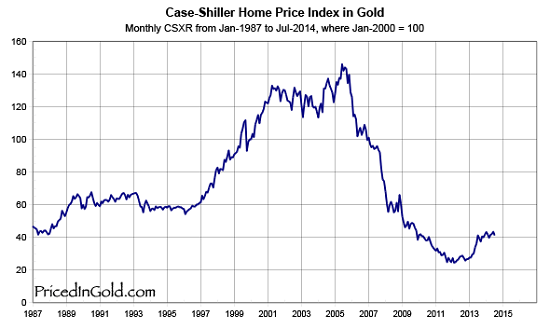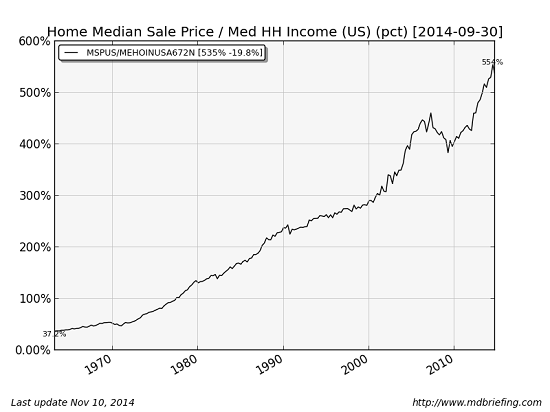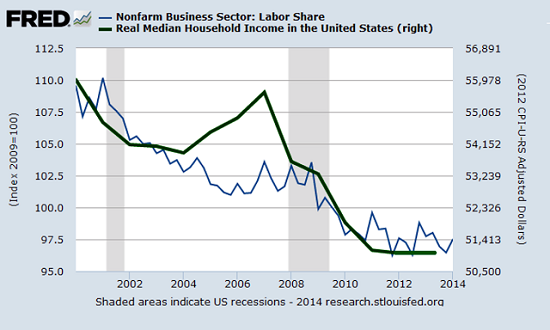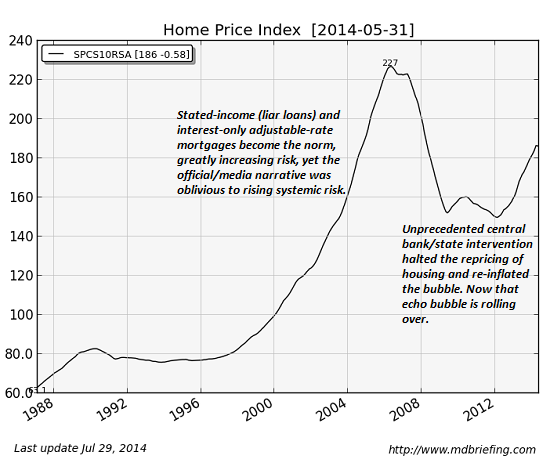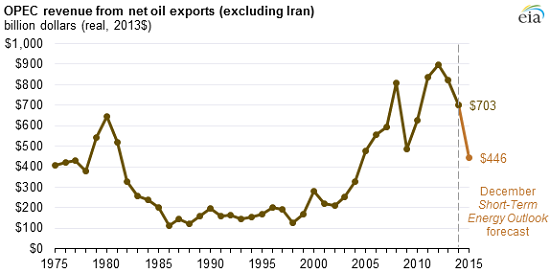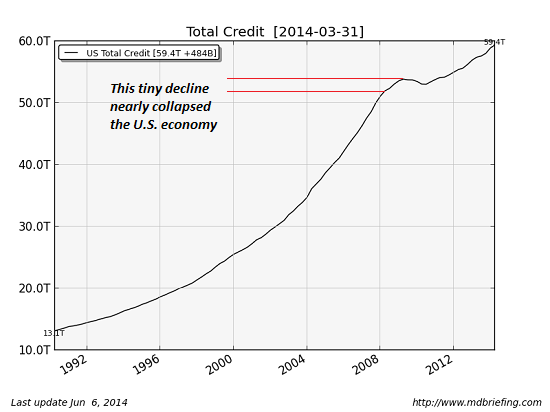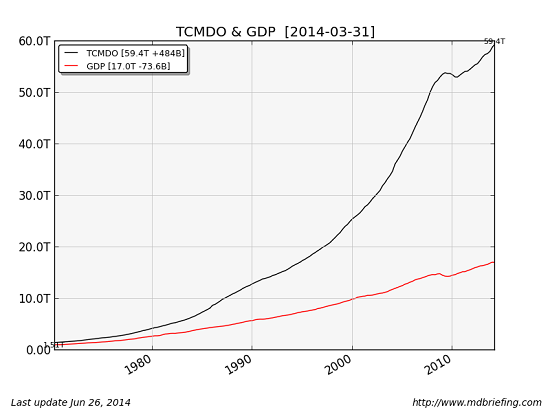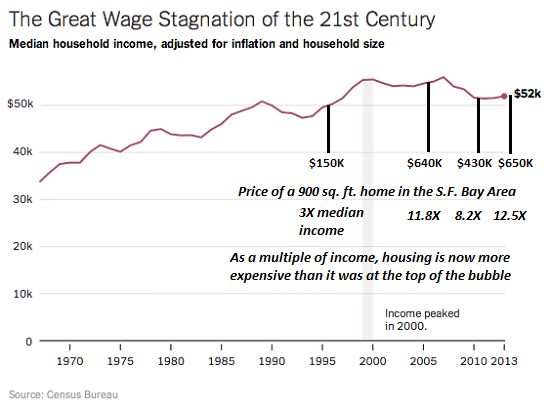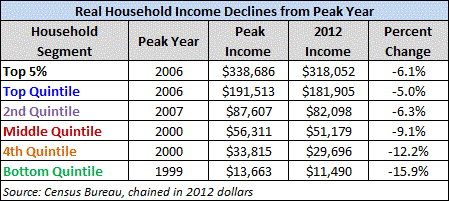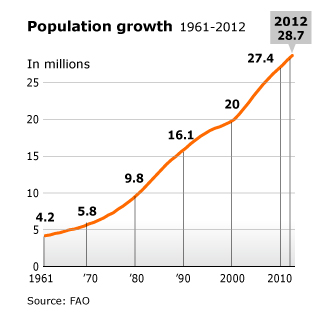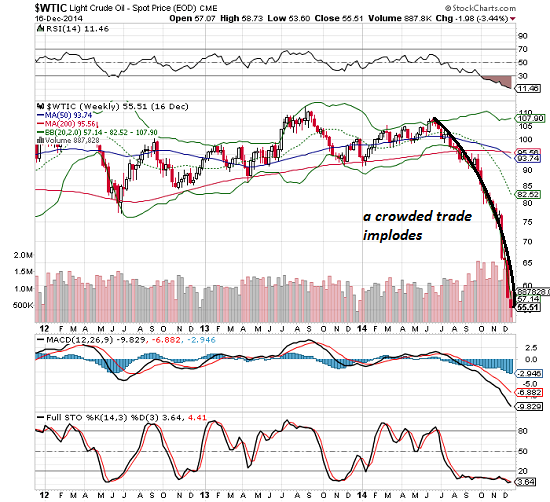2015 Housing Trends: Will the Echo Bubble Continue Expanding?
Considering the reality that only the top 5% have benefited from the policies of the past six years, it's difficult to see how the Echo Bubble can continue expanding in 2015.
After two years of bubble-type price increases, the big question for housing in 2015 is: will the Echo Bubble continue expanding, or will it follow its 2002-2007 sibling's epic bubble pop and decline? To answer the question, we first need to identify the key trends that have enabled the expansion of the Echo Bubble.
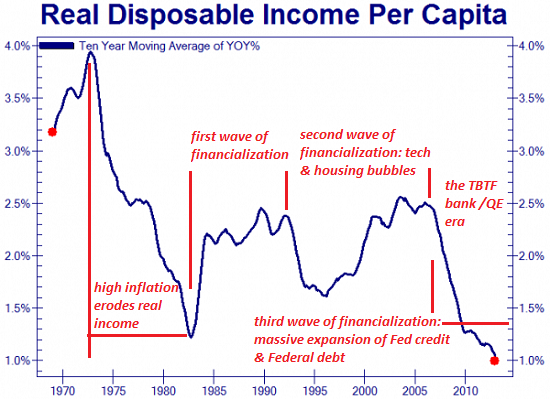
Let's consider each of the three trends that have pushed prices higher.
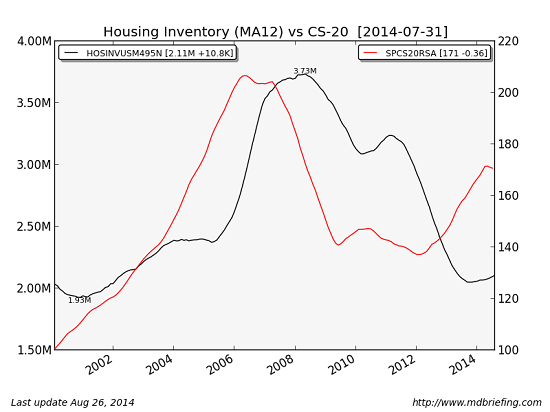
Cash sales/mortgage credit. This chart of mortgage credit growth and the Case-Shiller house price index shows that mortgage credit has lagged the explosive rise in price, suggesting much of the price appreciation has been driven not by Americans buying homes to live in, but foreign buyers and domestic investors paying cash.
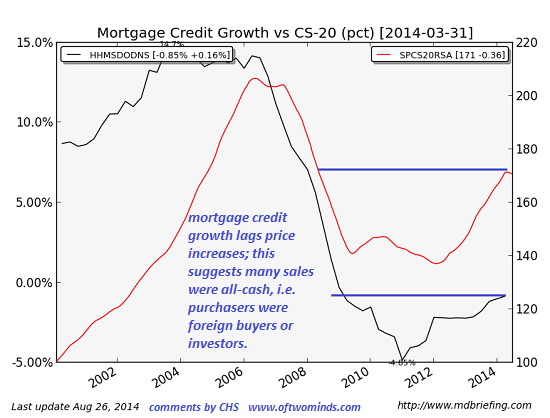
Is there any limit on the number of foreign buyers with hot money to launder by buying U.S. houses? That's an unknown with multiple variables. The imposition of capital controls in periphery economies could trigger a tsunami of hot money seeking safe haven. But once that wave breaks, the flow of hot money could subside.
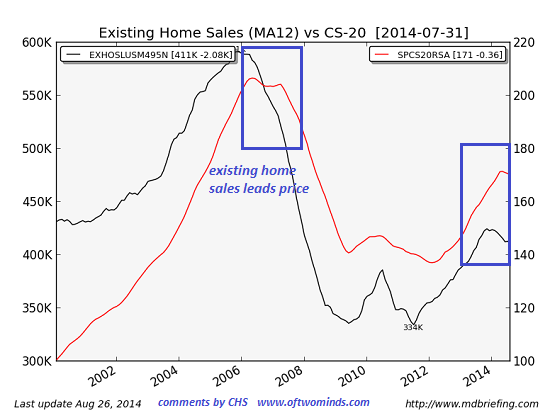
Will the Echo Bubble continue expanding in 2015? Let's answer with another set of questions: is a housing market that is dependent on marginal buyers who would never qualify to buy a house with prudent risk management a sustainable market? Is a housing market that is dependent on hot money from overseas buying houses for cash a sustainable market? Is a housing market that is dependent on investors buying homes to rent a sustainable market?
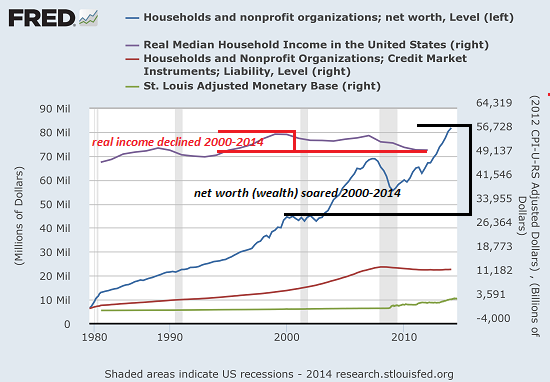
Get a Job, Build a Real Career and Defy a Bewildering Economy(Kindle, $9.95)(print, $20)
 Are you like me? Ever since my first summer job decades ago, I've been chasing financial security. Not win-the-lottery, Bill Gates riches (although it would be nice!), but simply a feeling of financial control. I want my financial worries to if not disappear at least be manageable and comprehensible.And like most of you, the way I've moved toward my goal has always hinged not just on having a job but a career.
Are you like me? Ever since my first summer job decades ago, I've been chasing financial security. Not win-the-lottery, Bill Gates riches (although it would be nice!), but simply a feeling of financial control. I want my financial worries to if not disappear at least be manageable and comprehensible.And like most of you, the way I've moved toward my goal has always hinged not just on having a job but a career.You don't have to be a financial blogger to know that "having a job" and "having a career" do not mean the same thing today as they did when I first started swinging a hammer for a paycheck.
Even the basic concept "getting a job" has changed so radically that jobs--getting and keeping them, and the perceived lack of them--is the number one financial topic among friends, family and for that matter, complete strangers.
So I sat down and wrote this book: Get a Job, Build a Real Career and Defy a Bewildering Economy.
It details everything I've verified about employment and the economy, and lays out an action plan to get you employed.
I am proud of this book. It is the culmination of both my practical work experiences and my financial analysis, and it is a useful, practical, and clarifying read.
Test drive the first section and see for yourself. Kindle, $9.95 print, $20
"I want to thank you for creating your book Get a Job, Build a Real Career and Defy a Bewildering Economy. It is rare to find a person with a mind like yours, who can take a holistic systems view of things without being captured by specific perspectives or agendas. Your contribution to humanity is much appreciated."
Laura Y.
Gordon Long and I discuss The New Nature of Work: Jobs, Occupations & Careers(25 minutes, YouTube)
NOTE: Contributions/subscriptions are acknowledged in the order received. Your name and email remain confidential and will not be given to any other individual, company or agency.
| Thank you, Tom R. ($20), for your much-appreciated generous contribution to this site-- I am greatly honored by your support and readership. |





















